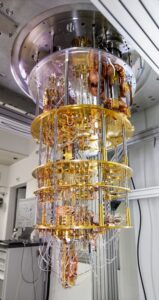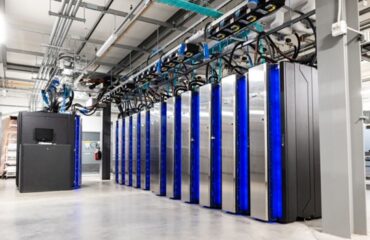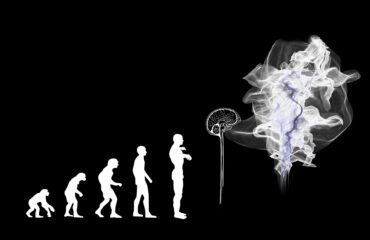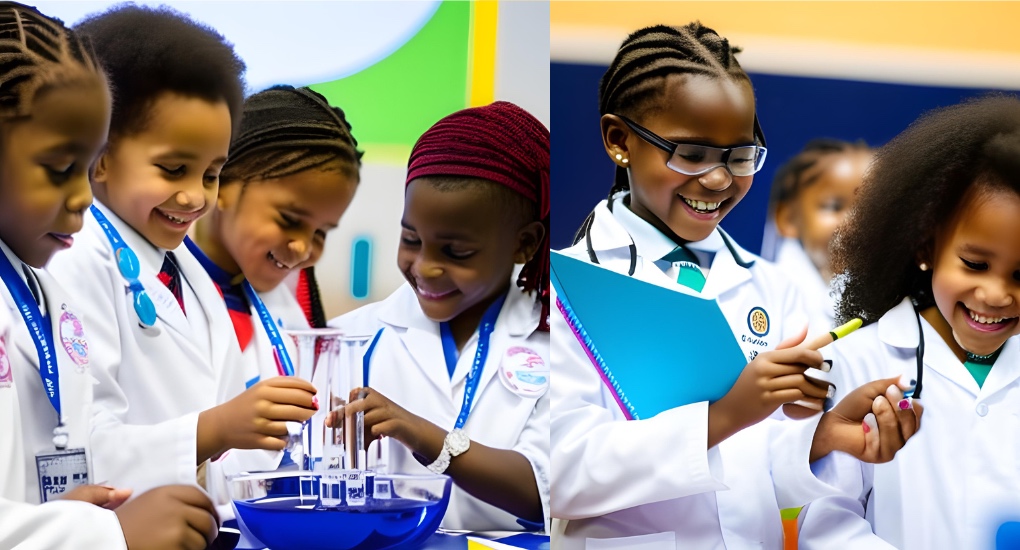
Inspiring a love for science among young girls globally is crucial to unlock their potential, fostering diversity in sciences, and empowering them to contribute to innovative solutions for global challenges. AI-generated in Canva.
By Mariana Meneses
Quantum computing is inspiring the scientists and innovators of tomorrow, with youth-led projects aimed at involving kids in science.
Girls in Quantum is a project founded by Elisa Torres Durney, a 17-year-old Chilean who is helping to spread interest in quantum computing to girls around the world.
The Girls in Quantum website describes the project as “a group of students that wants to involve girls from around the world in the field of Quantum Computing,” and “provide free educational resources for girls and students around the world so they can get involved in the field of Quantum Computing. We want to bring them the opportunities they need to collaborate and, thus, make an impact by strengthening their abilities and talents.”
Girls in Quantum teaches girls from across the world how quantum technology can be used to solve global issues, and they introduce participants to professionals in the field. The goal is to collaborate with different organizations and companies to help students with resources and opportunities. Durney writes articles for the website, such as Classical vs Quantum Cryptography and Quantum computers?!, which provide information on the science and recent developments in these technologies.
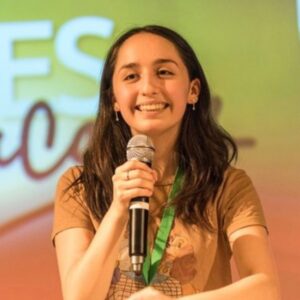
Elisa Torres Durney is founder of Girls in Quantum
Elisa told The Quantum Record:
“I started Girls in Quantum after I had the great opportunity to receive a scholarship and participate in an introductory program on Quantum Computing. This course opened my eyes to how this technology can impact us in the future and potentially help advance different areas such as pharmacology, medicine, finances, and even help us tackle climate change.
I certainly loved the enthusiastic community, especially since I saw many girls participating, which inspired me to share educational resources in my community. This way, students, especially girls, can learn about this fascinating field and interact with like-minded students, helping to close the gender gap. I never thought it would become an international nonprofit, but thanks to my incredible team, composed of students from 11 countries, and our supporters, like Perimeter Institute, IBM, Inspiring Girls, Infleqtion, Quanscient and Le Wagon, we have organized seminars and mentoring sessions, developed blogs and over 150 educational posts, participated in conferences, and even visited schools.”
You can listen to Elisa describe the activities of Girls in Quantum and the group’s ambitious plans on The Quantum Feedback Loop‘s newest episode wherever you get your podcasts.
Another inspired project is The Quantum Qid Foundation. Ten-year-old Aaron Wang has a message for children all over the world: “Imagine a world where children use unique superheroes in a Quantum world to mimic real life scenarios and go on crusading missions across diverse global locations.”
In founding The Quantum Qid Foundation, Aaron has demonstrated a remarkable initiative with a noble mission: to help end unnecessary suffering in the world through the transformative power of quantum technology.
Aaron describes the organization as a “twenty-first century kids’ club,” and with its weekly global meeting, Quantum Qid aims for the widest possible reach. With a focus on advocacy, learning, and exploration, the foundation actively promotes awareness of Quantum Tech 1.0 among youth.
A presentation on the Quantum Qid website explains that the name was coined by Dark Star Quantum Lab Inc. co-founder Dr. Faisal Shaw Khan, ant that co-founder Dave D’Silva is Aaron’s mentor. The Quantum Qid’s website also features Aaron’s videos explaining quantum science concepts. For instance, in this video he explains quantum entanglement.
Quantum Qid creates virtual worlds within Microsoft Minecraft.
They have a dedicated server in Minecraft where they operate a concept called the Quantum Circular Economy, or Quantum Circularity. This concept revolves around a system called the Win-Win Bully Watch.
The Win-Win Bully Watch system aims to address the issue of bullying and transform it into something productive. In this virtual world, Quantum Qid designs a system that encourages positive behavior and discourages bullying. They create a space where children can interact with each other and learn how to resolve conflicts in a constructive manner.
Quantum mechanics has allowed us to develop lasers, MRI scanners, nuclear power, and transistors. Quantum mechanics also lets us understand and control semiconductors, which paved the way for computers, tablets, and smartphones.
In a written statement to The Quantum Record, Aaron explained that the Quantum Qid Foundation is a non-profit organization, and that they “plan to actualize quantum technology and teach one million children and youth the capabilities needed to assemble and run a Quantum Nation-Quantum Qid United Nation (to execute the UN-17 SDG using Quantum Tech 1.0).” He told us that their “audience is for children and youth (6-29 years old) and their parents around the world who seek hope, direction, and to be bequeathed with the world’s most advanced technology.”
The foundation hosts a global meeting every Friday night, creating a platform for like-minded individuals to come together, share ideas, and contribute to the cause. Donations are solicited to support the Quantum Kid Foundation in their mission.
Projects aimed at instilling in youth a love for science are especially critical in today’s rapidly evolving technological world. By igniting curiosity and enthusiasm at a young age, these initiatives lay the foundation for a lifelong passion for scientific exploration and discovery. By investing in the next generation of scientists and innovators, we pave the way for groundbreaking advancements, sustainable solutions, and a society that embraces the wonders and potential of science.
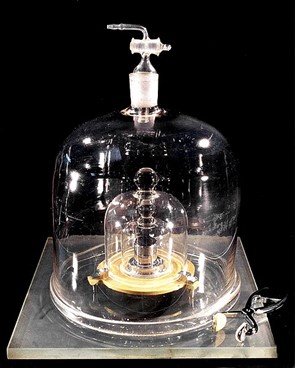
The International Prototype Kilogram stored in a vault in Paris was replaced by Planck’s constant in 2019 when the description of the kilogram became based on the principles of quantum mechanics. Credit: International Bureau of Weights and Measures
Quantum Computing is at the frontiers of modern science, and promises to open many paths for today’s youth to explore and discover.
Quantum computing is a rapidly emerging field that promises to revolutionize information processing by harnessing the peculiar properties of quantum mechanics. Unlike classical computers that rely on bits representing either a 0 or 1, quantum computers use quantum bits, or qubits, which can exist in a “superposition” of both states simultaneously. The qubit therefore records all probabilities of outcomes that lie between 0 and 1. This allows quantum computers to perform operations on an exponentially larger scale, enabling faster and more efficient processing of complex problems.
QML (Quantum machine learning), a promising and emerging field, holds the potential to revolutionize a number of industries. Its applications span diverse areas, such as cost-effective drug development, accurate financial modeling, and the creation of stronger, lighter, and more durable materials. Some of the latest and most promising applications of quantum computing include:
Drug discovery: Quantum computers can help scientists simulate the behavior of molecules more accurately, which can lead to more efficient drug development. Traditional computers can only simulate small molecules, but quantum computers can handle much larger and more complex molecules. This allows scientists to better understand how molecules interact with each other and how drugs can be designed to target specific molecules. By using quantum computers, scientists can save time and resources in the drug development process, ultimately leading to the creation of more effective treatments.
According to a May 2023 press release from Bio-IT World, a consortium of international scientists has taken the first step toward incorporating quantum computing into artificial intelligence (AI)-powered drug discovery. Generative AI is already being used to dream up new molecules that act on new targets in order to treat diseases. Quantum computing has the potential to revolutionize the process of drug discovery and development by quickly analyzing vast amounts of data and simulating molecular interactions.
Finance: Quantum computers could be used to develop new financial models and algorithms that could improve risk management and investment strategies. For example, in 2020, researchers led by Nikitas Stamatopoulos, currently Head of Quantum Computing at Goldman Sachs, developed a methodology for pricing options that might be used in a quantum computer.
Cryptography: Quantum computers could be used to break current encryption standards, which could pose a major threat for cybersecurity. The Quantum Record recently reviewed the mounting concerns for cryptography, and will revisit the state of matters in an upcoming edition.
Machine learning: Quantum computers could be used to train machine learning models that are much more accurate and efficient than those that can be trained on classical computers. For example, researchers at IBM have shown that a quantum computer can be used to train a machine learning model to classify images in their basic quantum state, at their minimum-probability limits, which could yield far more accurate classifications than today’s computers can perform. According to Forbes, IonQ, a leading company in Quantum Computing, has already surpassed traditional machine learning models with its innovative approaches.
As the technology continues to develop, we can expect to see even more innovative and groundbreaking applications emerge. Quantum computing holds the key to unlocking powerful new algorithms and scientific breakthroughs that could shape the futures of today’s youth.
Initiatives like Girls in Quantum and The Quantum Qid are incredibly important for encouraging girls and boys to pursue careers in science, and quantum computing in particular. Quantum computing is a rapidly growing field with the potential to revolutionize many aspects of our lives, from healthcare to artificial intelligence, with the potential to address challenges related to climate change, energy security, and national security.
Exposing girls to quantum computing at a young age can help to close the gender gap in STEM and ensure that women are a part of the future of these exciting fields.
The trend is becoming clear. In February 2020, The Quantum Insider listed 12 women pioneering in the world of quantum computing. The list included names such as Rebecca Krauthamer, founder of the startup Quantum Thought (quantum application development for cybersecurity, AI, and precision medicine) and QuSecure (secure quantum applications for businesses), and Araceli Venegas-Gomez, founder and director of Qureca (quantum training, business services and more). Who knows, maybe Girls in Quantum and Quantum Qid will foster amazing discoveries in the future of quantum computing?
Check out this TQR article, in which we featured a number of citizen science projects.
If you are interested in other ‘quantum’ subjects, check out these handpicked TQR articles:
- Quantum Security: How Much Time Will We Have to Conquer a Cryptography Crisis?
- Major Advances in Quantum Computing Revolution
- Preparing for the Quantum Computing Revolution
- Experiment Points to Possible Universal Connection for Classical and Quantum Mechanics

